
The other day, I couldn’t stop sneezing and wondered—do air purifiers help with germs, or are they just overpriced fans? With flu season coming and COVID-19 still a concern, it’s a question worth asking.
I’ve used air purifiers for years and noticed cleaner air, but what about bacteria and viruses? Do HEPA filters really trap germs? Can an air purifier for viruses make a real difference? Let’s break it down in simple terms and see if these machines are worth it.
How Do Air Purifiers Work Against Germs?
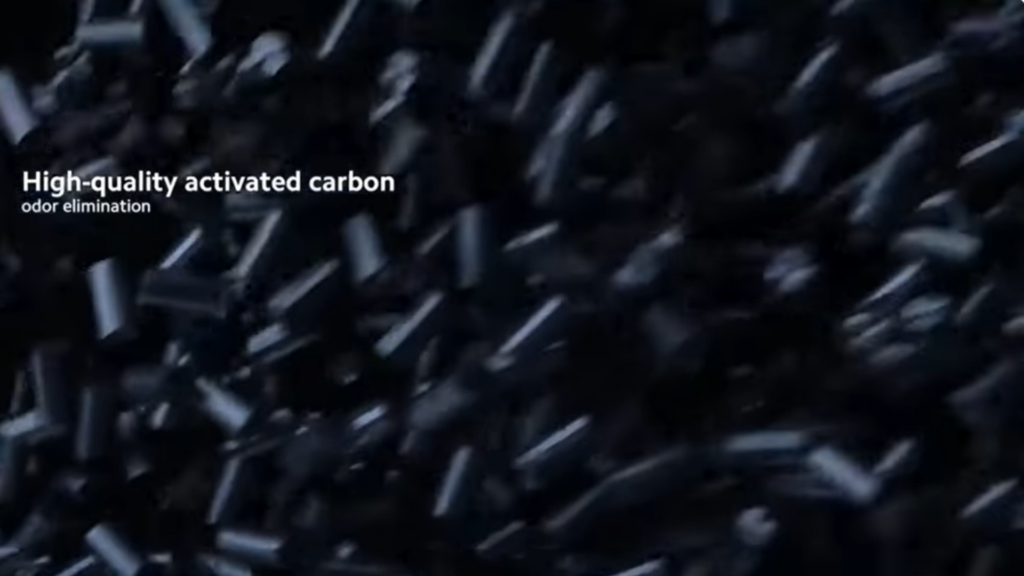
Ever think about what’s floating in your air? Dust, pollen, pet dander—sure. But germs? That’s where things get tricky. Air purifiers don’t kill germs, but they can trap and reduce them.
HEPA Filters & Germs: How They Work
Not all air purifiers are the same, but HEPA filters are the real heroes. They capture 99.97% of tiny particles—including bacteria and virus-carrying droplets. HEPA filters don’t kill germs, but they stop them from spreading. Think of them like a safety net, catching bad stuff before you breathe it in.
Do Air Purifiers Kill Viruses?
Here’s the truth: Most air purifiers don’t kill viruses—they just remove them from the air. But some models use UV-C light to destroy germs at the molecular level. If you want to kill germs, go for a purifier with UV-C or PECO technology. Otherwise, a HEPA filter still helps by reducing airborne viruses.
So, do air purifiers help with germs? Yes, but they work best with other clean-air habits. Keep reading to see how they handle viruses like COVID-19 and which type works best.
Do Air Purifiers Help With COVID and Other Viruses?
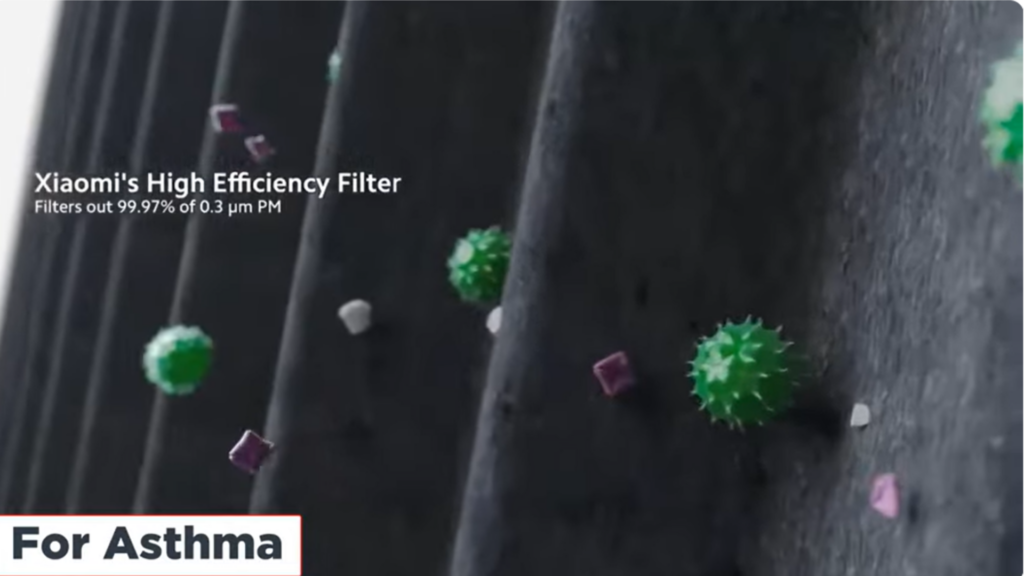
When COVID-19 hit, we all started worrying about the air we breathe. Suddenly, air purifiers weren’t just for allergies—they became a possible way to fight germs. But can they really help with COVID and other viruses? The short answer: Yes, but only with the right filter.
Air Purifier for Viruses: Do They Really Work?
Air purifiers can reduce airborne viruses, but they don’t make a space virus-free. The key is using a HEPA filter, which can trap virus-carrying droplets. While air purifiers help clean the air, they don’t replace good ventilation or hygiene habits.
HEPA Filter & COVID: What Science Says
Research shows HEPA filters can capture COVID-19 particles, which are about 0.1 microns in size. Since HEPA filters trap 99.97% of particles as small as 0.3 microns, they help remove virus-laden aerosols. This means an air purifier with a HEPA filter can lower airborne COVID-19 levels.
Air Purifier for COVID: Can It Reduce Spread Indoors?
Air purifiers can help reduce COVID-19 indoors, especially in rooms with poor airflow. By filtering out virus particles, they lower the risk of airborne transmission. But they’re not a magic fix. For the best protection, use them along with open windows, masks, and good hygiene.
So, do air purifiers help with COVID? Yes, they remove virus particles from the air, but they work best when combined with other safety measures. Up next—my personal experience. Did an air purifier really make a difference in my home?
My Personal Experience With Air Purifiers
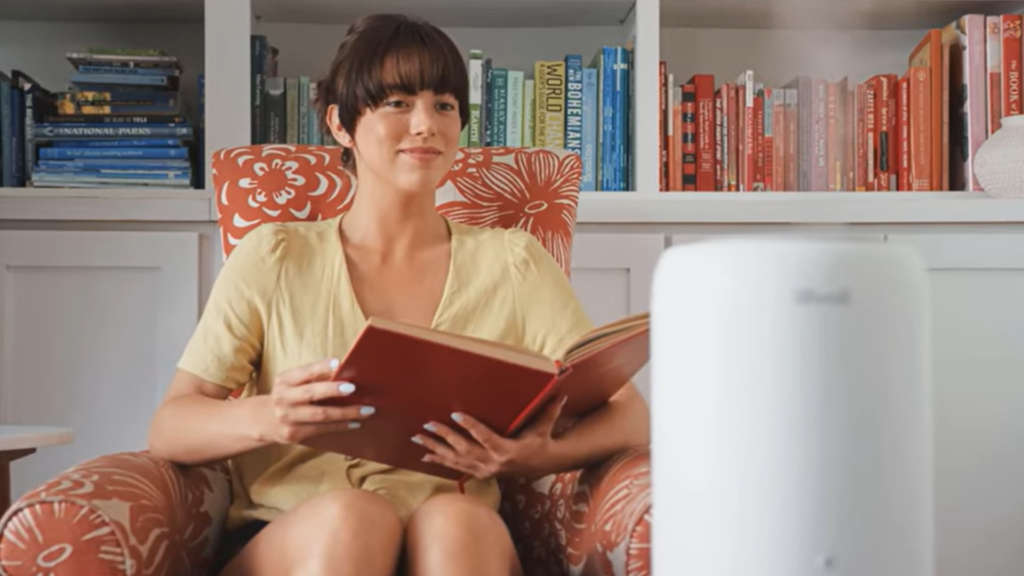
A few years ago, I bought an air purifier, hoping it would help with dust. But what surprised me? I didn’t get sick as often. No more back-to-back colds. No more waking up with a sore throat.
Did I Catch Fewer Colds and Flu?
At first, I thought it was a coincidence. But after months of using it, I noticed a pattern—less coughing, fewer sniffles, and no flu outbreaks in my home. Was it the purifier? Maybe. But the air felt cleaner, and I felt better.
How It Helped With Allergies and Air Quality
Before the purifier, dust made me sneeze all the time. But after a few weeks, I could breathe easier. The air felt fresher. My nose wasn’t stuffy in the mornings. It wasn’t magic, but it worked.
Final Thoughts: Was It Worth It?
For me, yes. While it won’t replace fresh air or cleaning, it made a big difference. If you deal with dust, allergies, or frequent colds, it’s worth a try.
What Type of Air Purifier Works Best for Germs?
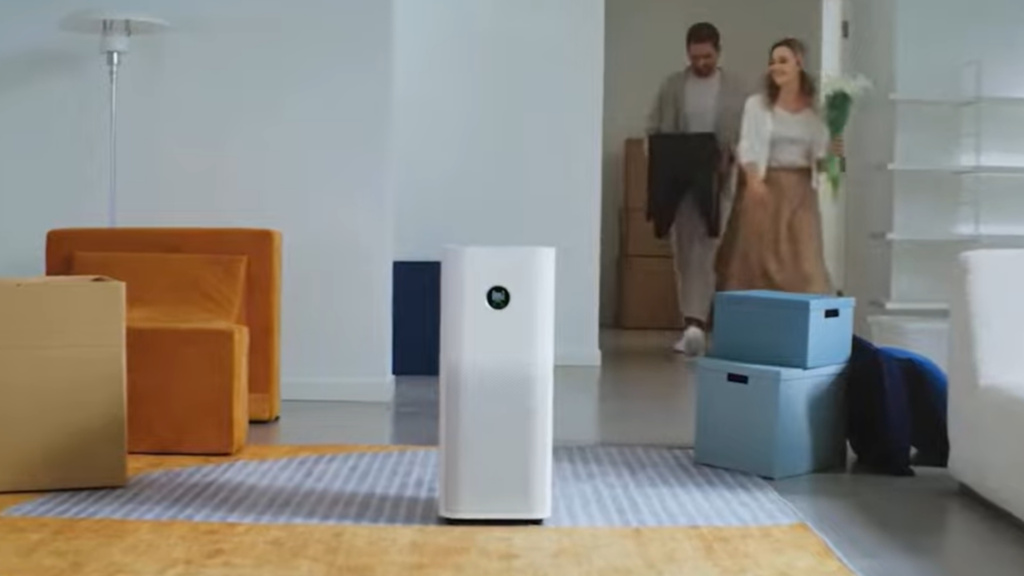
Wondering which air purifier is best for fighting germs? You’re not the only one.
I had the same question when I first started. HEPA, UV-C, carbon—it felt like a science lesson. But after using different purifiers and doing my homework, here’s what I learned.
HEPA Filters: Best for Catching Germs
Quick answer: HEPA filters are the best for trapping germs.
Think of them like a super tight net. They grab tiny stuff floating in the air—like dust, pollen, and yes, even germs. They catch 99.97% of small bits, including bacteria and virus-carrying droplets. They don’t kill germs, but they stop them from floating around.
I noticed this in flu season. Normally, someone at home would get sick. But once I started using a HEPA filter, that didn’t happen as much. The air felt fresher, and we stayed healthy longer.
UV-C Light Purifiers: Germ Killers (Sometimes)
Quick answer: UV-C can kill germs, but only if the air stays in the light long enough.
UV-C light breaks down germs and stops them from spreading. Sounds cool, right? But there’s a catch. Air moves fast. So, if the light doesn’t get enough time to hit the germs, it may not work well.
I had one of these. It felt high-tech, but I didn’t see a big change compared to my HEPA purifier. Also, be careful—some cheap ones might leak light, which isn’t safe. Stick with trusted brands.
Activated Carbon Filters: Great for Smells, Not Germs
Quick answer: Carbon filters clean the air, but they don’t kill germs.
These filters soak up smells, smoke, and gas. I love them for getting rid of food smells or stuffy air. But they won’t catch or kill viruses. Still, when used with a HEPA filter, they help make the air feel even cleaner.
Think of carbon filters like a sidekick. They don’t fight germs, but they support the hero—your HEPA filter.
So, What’s the Best One for Germs?
Go for a HEPA filter first. Add UV-C if you want. Carbon is a nice bonus.
If you want clean air and fewer germs, start with a true HEPA filter. That’s your best bet. UV-C is helpful, but not a must. Carbon filters make your room smell better, but they don’t stop sickness.
I tell friends this: Don’t pay for extras you don’t need. Get a good HEPA purifier, and you’re already way ahead.
Do Air Purifiers Help With Dust and Allergens Too?
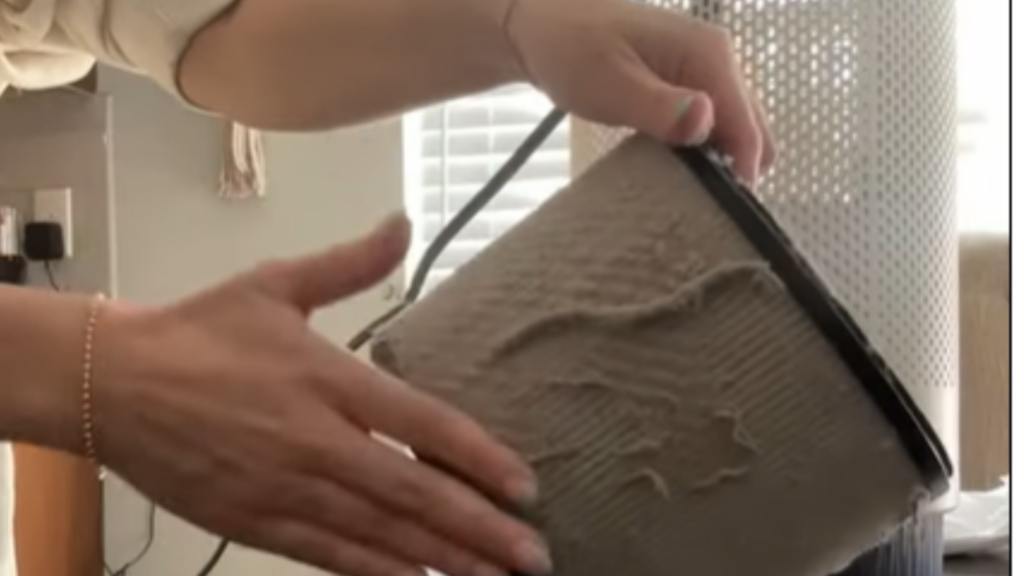
Ever see dust floating in the sunlight? It’s everywhere. And if you have allergies, you feel it too. But can an air purifier help?
Quick answer: Yes! Air purifiers trap dust and allergens, making the air cleaner and easier to breathe.
Why Dust and Allergies Go Together
Dust isn’t just dust. It’s a mix of pollen, pet hair, mold, and even germs. If you sneeze a lot or wake up stuffy, this could be why.
HEPA filters pull these tiny bits out of the air. Less dust means fewer allergens floating around.
My Experience: Did It Work?
I used to wake up sneezing every morning. I blamed my cat, my pillows—everything. Then, I got a HEPA air purifier. In a few weeks, I noticed less dust and fewer sneezes. It wasn’t magic, just cleaner air.
Can Less Dust Make You Healthier?
Yes! Dust carries germs and allergens. The less you breathe in, the better you feel. Studies show air purifiers help with asthma and allergies by cutting down on airborne triggers.
Of course, you still need to clean, but an air purifier adds extra protection.
Should You Get One for Allergies?
If you hate sneezing, have asthma, or just want cleaner air, a HEPA purifier is worth it. It won’t remove every allergen, but it helps—so you can breathe easier.
Common Myths About Air Purifiers and Germs
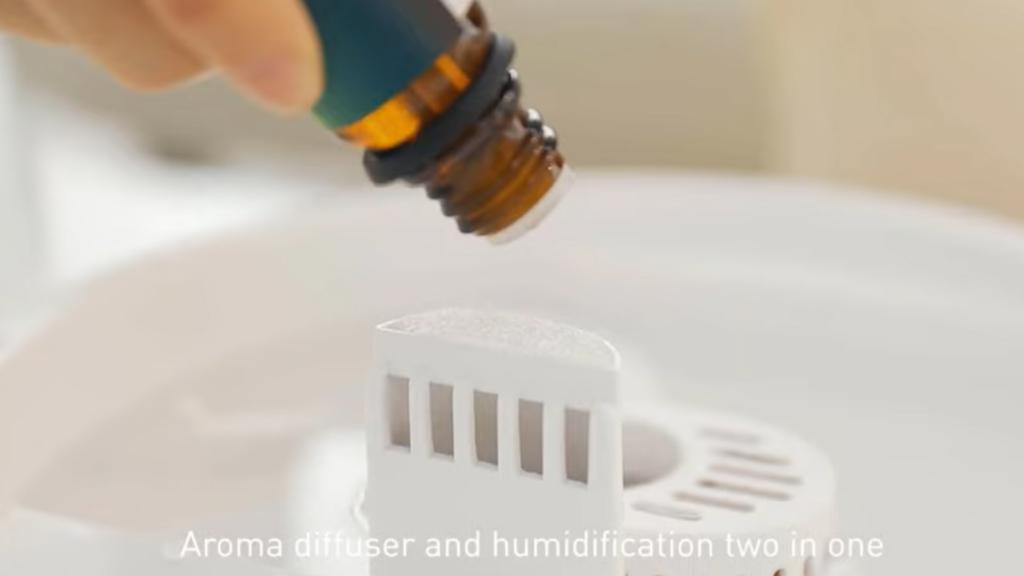
Air purifiers sound like a magic fix. But do they really get rid of germs? Let’s clear up some common myths.
Do Air Purifiers Remove All Bacteria?
No, but they cut down on germs in the air.
Some think an air purifier makes a room germ-free. That’s not true. HEPA filters trap bacteria and virus droplets, but they don’t kill them. So while fewer germs float around, surfaces can still have bacteria.
It’s like a net catching bugs. It stops most from flying around, but it doesn’t kill them. If you want to kill germs, look for UV-C light or PECO tech.
Can an Air Purifier Replace Cleaning and Fresh Air?
No, but it helps keep the air cleaner.
An air purifier works best with good habits. If you never dust or open windows, germs and dust still build up. The best way? Use it along with cleaning and fresh air.
I learned this the hard way. I thought my air purifier did all the work, so I skipped cleaning. Guess what? Dust piled up, and my allergies got worse. Air purifiers help, but they’re not a magic fix.
Do All Air Purifiers Remove Viruses?
No, only some can trap virus particles.
Not every air purifier fights viruses. If that’s your goal, get one with a HEPA filter. Some just remove odors—they won’t help with germs.
UV-C light can kill viruses, but only if used right. Cheap versions don’t give germs enough exposure time. Stick with trusted brands.
Bottom line? Not all purifiers stop viruses. For germs, go with HEPA or UV-C.
FAQs (Easy-to-Read & Voice Search Friendly)
Do air purifiers help with COVID at home?
Yes! HEPA air purifiers trap virus droplets, helping to clean the air. They don’t remove every germ, but they cut down on airborne particles.
I used mine during the pandemic, and it made me feel safer. It won’t replace fresh air or cleaning, but it’s a smart extra step.
Can air purifiers get rid of flu viruses?
Not exactly. Most air purifiers don’t kill flu viruses, but they help trap them. HEPA filters catch virus-carrying droplets, making them less likely to spread.
I noticed fewer colds when I started using one. Could be luck, but I’ll take it!
What’s the best air purifier for germs?
A HEPA purifier is your best choice. It catches tiny germs in the air, including bacteria and viruses. Some purifiers also have UV-C light or PECO tech to kill germs.
I tried a fancy UV-C purifier once, but honestly? My HEPA filter did most of the work. Stick with HEPA—it’s proven to help.
Do I need a HEPA filter to stop germs?
Yes! If you want to trap germs, HEPA is a must. It grabs 99.97% of small particles, including virus-carrying droplets.
When I switched to a HEPA purifier, I sneezed less and breathed easier. Totally worth it!
Conclusion: Are Air Purifiers Worth It for Germ Protection?
So, do air purifiers help with germs? Yes, but they’re not a magic fix.
If you want cleaner air, fewer germs, and less dust, a HEPA air purifier is a great choice. It catches tiny particles, including virus droplets, making your air safer to breathe.
Would I Recommend One?
Yes! I noticed fewer sniffles, less dust, and fresher air. It won’t replace cleaning, but it helps. If you deal with allergies or get sick often, it’s worth trying.
What About You?
Do you have an air purifier? Have you seen a difference? Let me know—I’d love to hear your experience!
My name is Carlos Gadd, and I am the creator of AirPurityGuide.com.. With a passion for footwear, I share my experiences, insights, and expertise about shoes. Through my blog, I aim to guide readers in making informed decisions, finding the perfect pair, and enhancing their footwear knowledge. Join me on this journey to explore everything about shoes!